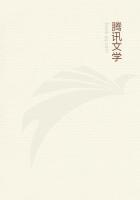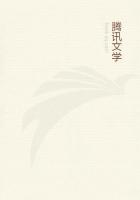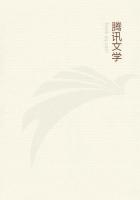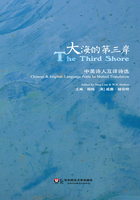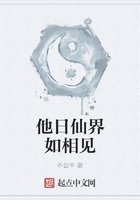As if we had an infectious touch, we, by our manner of handling, corrupt things that in themselves are laudable and good: we may grasp virtue so that it becomes vicious, if we embrace it too stringently and with too violent a desire. Those who say, there is never any excess in virtue, forasmuch as it is not virtue when it once becomes excess, only play upon words:
"Insani sapiens nomen ferat, aequus iniqui, Ultra quam satis est, virtutem si petat ipsam."
["Let the wise man bear the name of a madman, the just one of an unjust, if he seek wisdom more than is sufficient."--Horace, Ep., i. 6, 15.]
["The wise man is no longer wise, the just man no longer just, if he seek to carry his love for wisdom or virtue beyond that which is necessary.]
This is a subtle consideration of philosophy. A man may both be too much in love with virtue, and be excessive in a just action. Holy Writ agrees with this, Be not wiser than you should, but be soberly wise.--[St.
Paul, Epistle to the Romans, xii. 3.]-- I have known a great man, --["It is likely that Montaigne meant Henry III., king of France.
The Cardinal d'Ossat, writing to Louise, the queen-dowager, told her, in his frank manner, that he had lived as much or more like a monk than a monarch (Letter XXIII.) And Pope Sextus V., speaking of that prince one day to the Cardinal de Joyeuse, protector of the affairs of France, said to him pleasantly, 'There is nothing that your king hath not done, and does not do so still, to be a monk, nor anything that I have not done, not to be a monk.'"--Coste. prejudice the opinion men had of his devotion, by pretending to be devout beyond all examples of others of his condition. I love temperate and moderate natures. An immoderate zeal, even to that which is good, even though it does not offend, astonishes me, and puts me to study what name to give it. Neither the mother of Pausanias, --["Montaigne would here give us to understand, upon the authority of Diodorus Siculus, that Pausanias' mother gave the first hint of the punishment that was to be inflicted on her son. 'Pausanias,' says this historian, 'perceiving that the ephori, and some other Lacedoemonians, aimed at apprehending him, got the start of them, and went and took sanctuary m Minerva's temple: and the Lacedaemonians, being doubtful whether they ought to take him from thence in violation of the franchise there, it is said that his own mother came herself to the temple but spoke nothing nor did anything more than lay a piece of brick, which she brought with her, on the threshold of the temple, which, when she had done, she returned home. The Lacedaemonians, taking the hint from the mother, caused the gate of the temple to be walled up, and by this means starved Pausanias, so that he died with hunger, &c. (lib. xi. cap. 10., of Amyot's translation). The name of Pausanias' mother was Alcithea, as we are informed by Thucydides' scholiast, who only says that it was reported, that when they set about walling up the gates of the chapel in which Pausanias had taken refuge, his mother Alcithea laid the first stone."--Coste.] who was the first instructor of her son's process, and threw the first stone towards his death, nor Posthumius the dictator, who put his son to death, whom the ardour of youth had successfully pushed upon the enemy a little more advanced than the rest of his squadron, do appear to me so much just as strange; and I should neither advise nor like to follow so savage a virtue, and that costs so dear.--["Opinions differ as to the truth of this fact. Livy thinks he has good authority for rejecting it because it does not appear in history that Posthumious was branded with it, as Titus Manlius was, about 100 years after his time; for Manlius, having put his son to death for the like cause, obtained the odious name of Imperiosus, and since that time Manliana imperia has been used as a term to signify orders that are too severe; Manliana Imperia, says Livy, were not only horrible for the time present, but of a bad example to posterity. And this historian makes no doubt but such commands would have been actually styled Posthumiana Imperia, if Posthumius had been the first who set so barbarous an example (Livy, lib. iv. cap. 29, and lib. viii. cap. 7). But, however, Montaigne has Valer.
Maximus on his side, who says expressly, that Posthumius caused his son to be put to death, and Diodorus of Sicily (lib. xii. cap.
19)."--Coste.]
The archer that shoots over, misses as much as he that falls short, and 'tis equally troublesome to my sight, to look up at a great light, and to look down into a dark abyss. Callicles in Plato says, that the extremity of philosophy is hurtful, and advises not to dive into it beyond the limits of profit; that, taken moderately, it is pleasant and useful; but that in the end it renders a man brutish and vicious, a contemner of religion and the common laws, an enemy to civil conversation, and all human pleasures, incapable of all public administration, unfit either to assist others or to relieve himself, and a fit object for all sorts of injuries and affronts. He says true; for in its excess, it enslaves our natural *******, and by an impertinent subtlety, leads us out of the fair and beaten way that nature has traced for us.
The love we bear to our wives is very lawful, and yet theology thinks fit to curb and restrain it. As I remember, I have read in one place of St.
Thomas Aquinas,--[Secunda Secundx, Quaest. 154, art. 9.]-- where he condemns marriages within any of the forbidden degrees, for this reason, amongst others, that there is some danger, lest the friendship a man bears to such a woman, should be immoderate; for if the conjugal affection be full and perfect betwixt them, as it ought to be, and that it be over and above surcharged with that of kindred too, there is no doubt, but such an addition will carry the husband beyond the bounds of reason.

